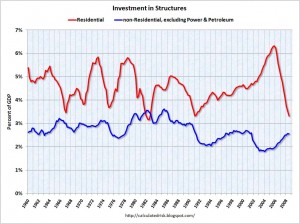If you are so minded, it isn’t hard to determine who should have their vote suspended until they join the world of wealth creation: those who take wealth contributed by others and give nothing in return (except their purchased vote). There are discrete borders.
The public sector is much harder. It is more diverse, for one thing. No one would argue that the emergency services or the military are not well entitled to their vote. We couldn’t do without them. I would also argue that the diplomatic service, by and large, not only performs an essential function it is the first port of call if a citizen gets into difficulties overseas but assists in the creation of wealth, in that part of its remit is to facilitate trade. Indeed, the foreign service is essential to any country’s wellbeing.
Most of the government agencies in Britain do perform a reasonable function, although, being socialists, not particularly well. (I don’t knows enough about the current workings within the US Government, but doubtless other Chicago Boyz do …)
But a whole new, utterly useless industry has crept in. Soft, amorphous, nebulous … the human rights, global warming, multiculti and associated industries. They perform no purpose. There is no hunger among the taxpayers for their existence. Yet they are paid out of the taxpayers’ pockets. The diversity industry is one such. It generates no wealth and performs no service other than placing the yoke of social engineering round the neck of the taxpayer. The human rights industry is another one. The social engineering industry is another. Far from being of service to the taxpayer, I would contend that they are destructive, and if they can’t be shut down, the people attending meetings and doing research and writing reports to no purpose should at least be removed from the electoral rolls because they are, essentially, not engaged in wealth creation or the facilitating of wealth creation, or the governance of wealth creation. In other words, they’re passengers.
In Britain, we also have the fascist Health & Safety departments in local governments which essentially seek to ban everything free people could normally engage in. For example, they want to outlaw swings in parks in case a child falls off. They want to ban parents from taking pictures of their children in public, in case they’re not really the parents, but paedophiles. Other examples are legion. But everything is always for a prim-lipped “moral” – therefore, inarguable – reason.
Also in Britain, and doubtless there will be a similar scam, differently named and presented actually, being American, probably better named and presented there is something called a quango. The initials stand for something, but who cares. These are “semi-government” think tanks and various advocacy groups. There are over 1100 quangoes in Britain now, like the liberty advocacy agency Liberty. What purpose it serves other than to provide employment for writers of press releases and spokesmen to go on TV talk shows, who knows? They enjoy favoured tax status, meaning, they are part of the government infrastructure.
Advertised jobs for local town and city councils now bristle with words like “Street football coordinator” (I have no idea) and “Real nappy (US: diaper) coordinator” (ditto) ; “Urdu translators”, “Bengali interpreters”, “Human rights managers” and so on. All of whose salaries, perks and pensions will be provided by the generosity of the taxpayer.
This, clearly, is wrong.
For one thing, the right wing taxpayer is being asked to fund a massive leftist Trojan horse. They contribute no wealth, nor the facilitation of creating wealth, and nor do they perform any essential public service. That they should have a vote on their own perpetuation dwells in the realm of lunacy.
